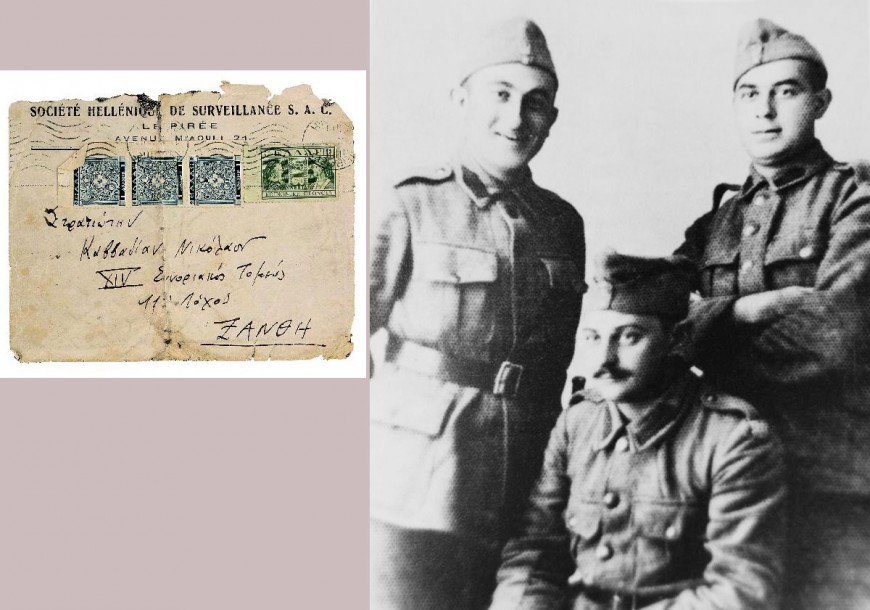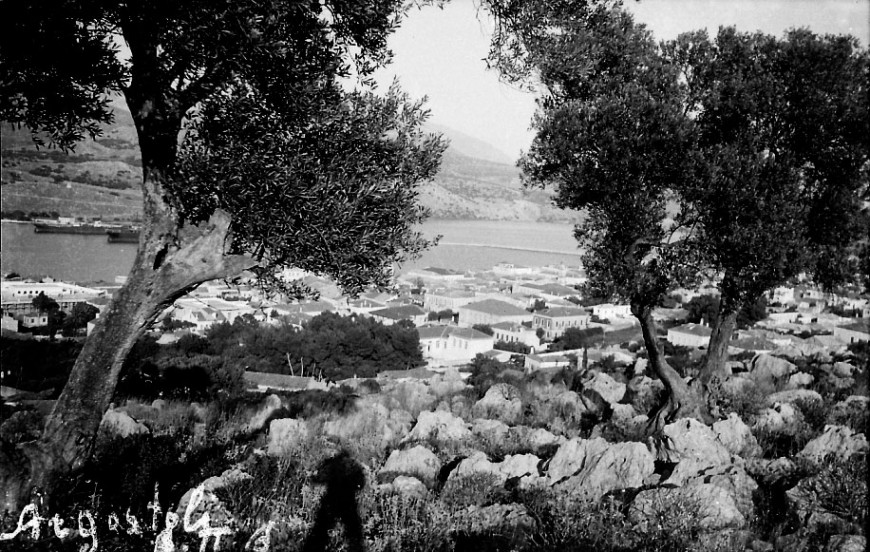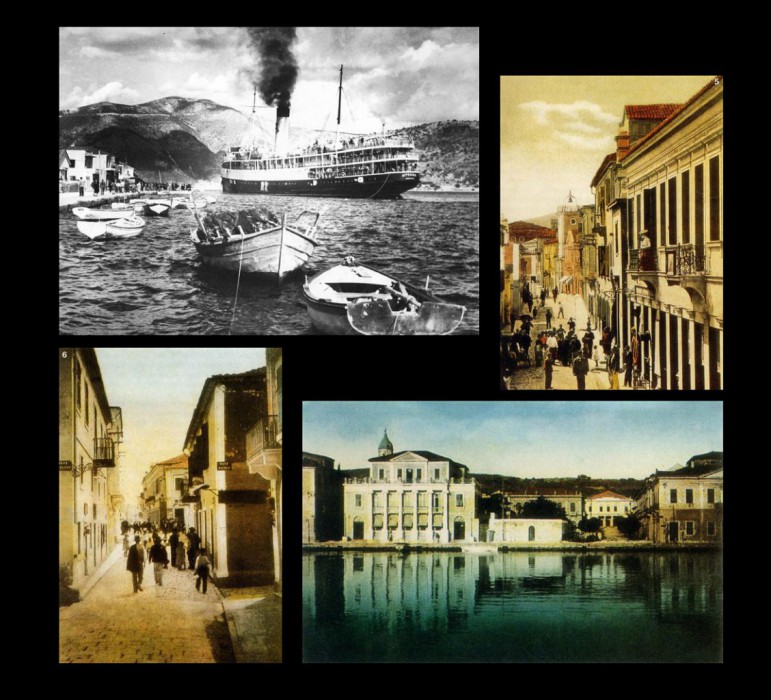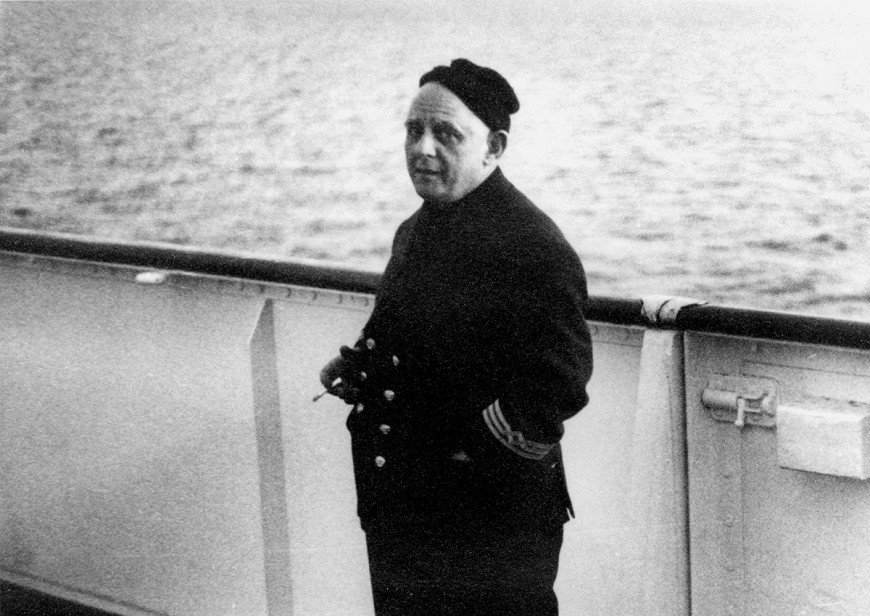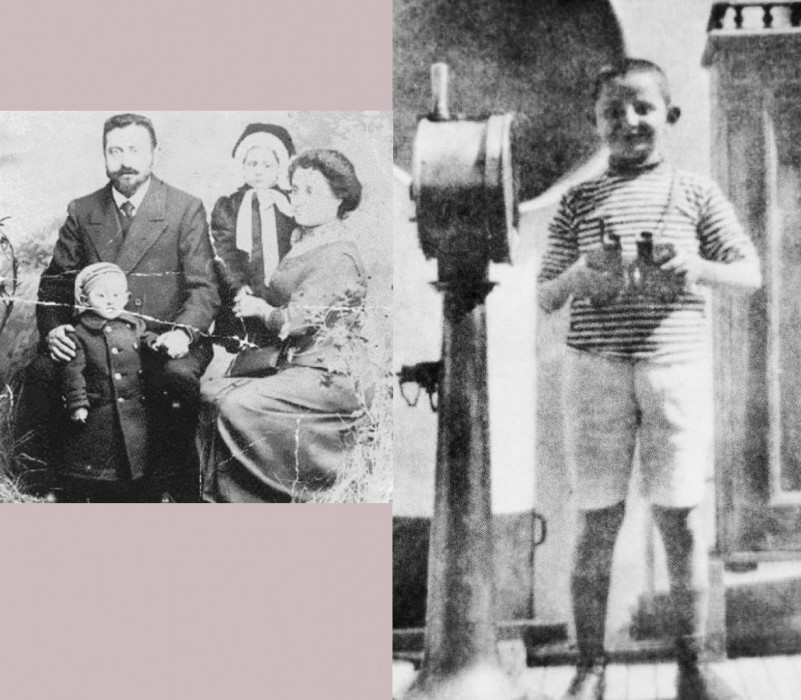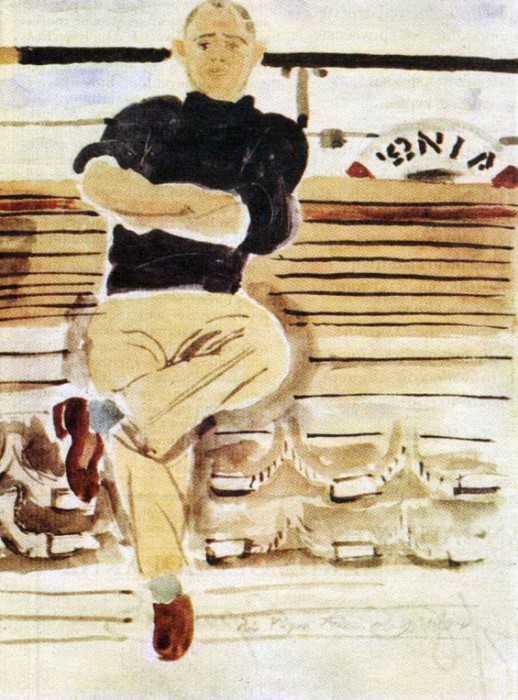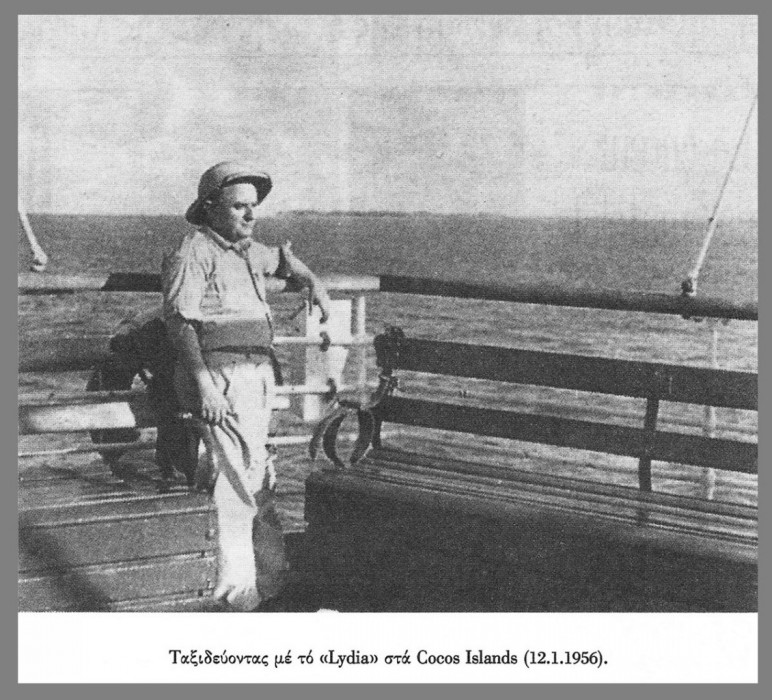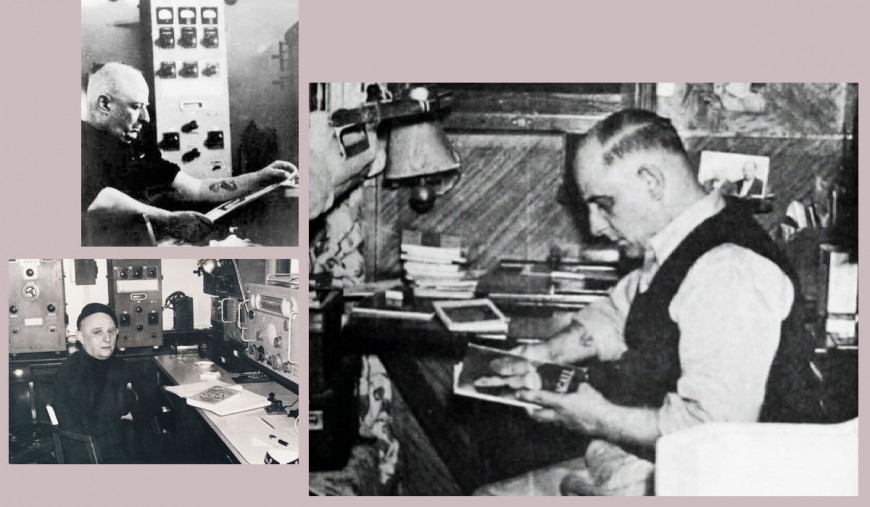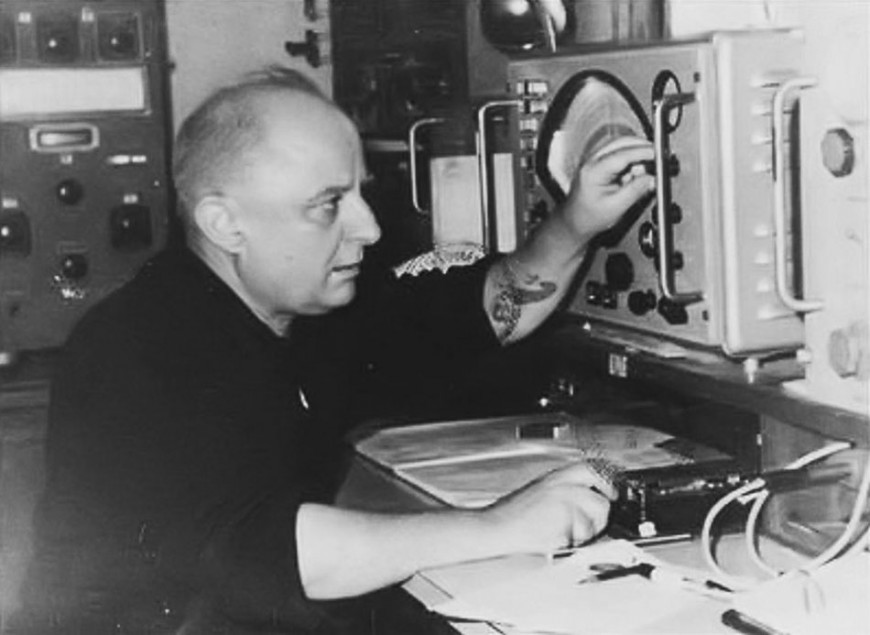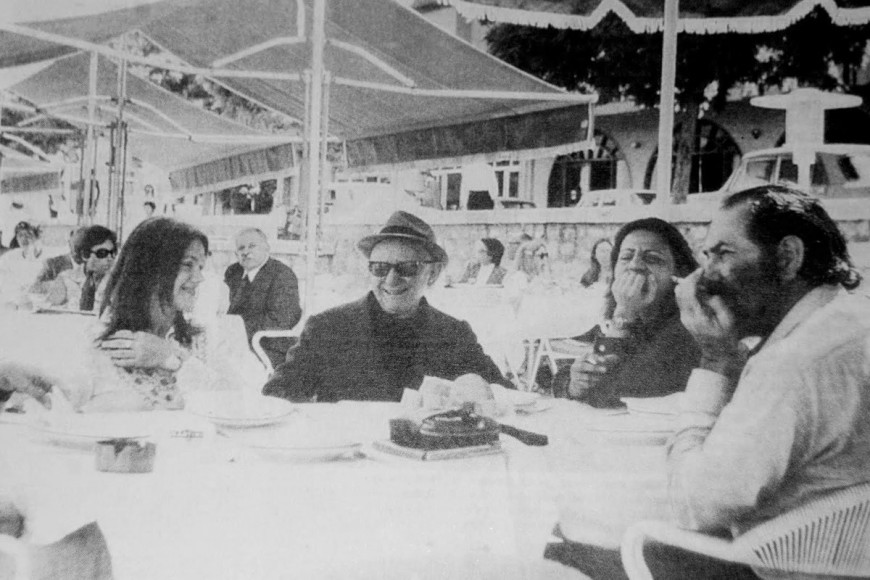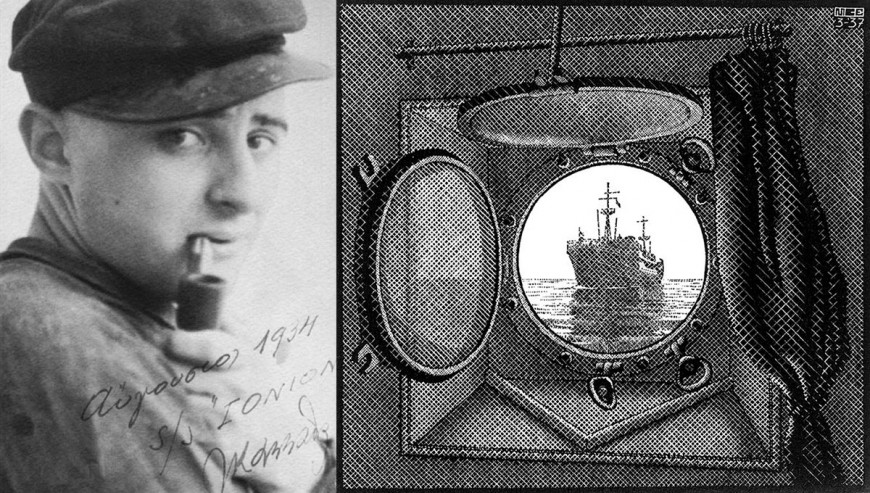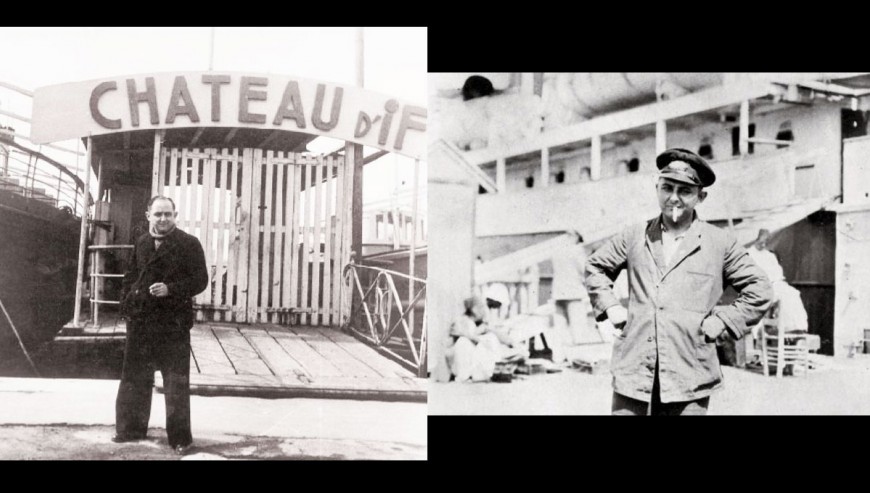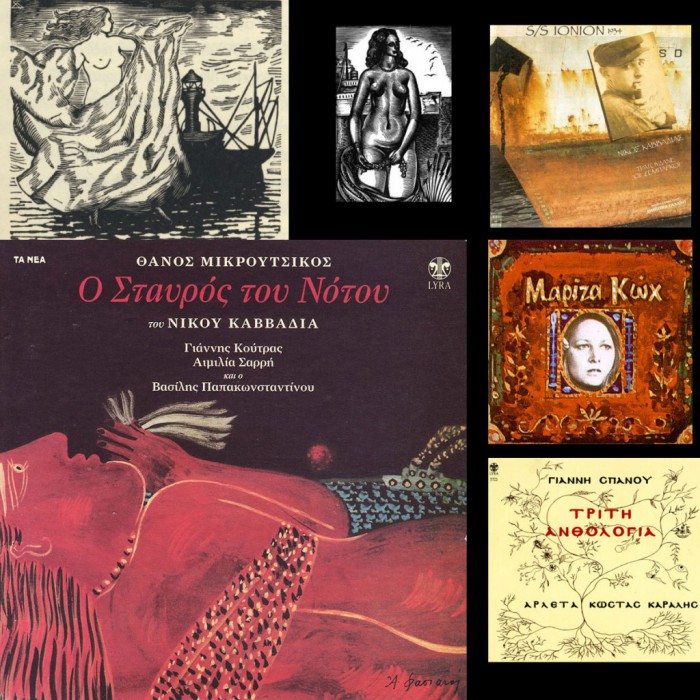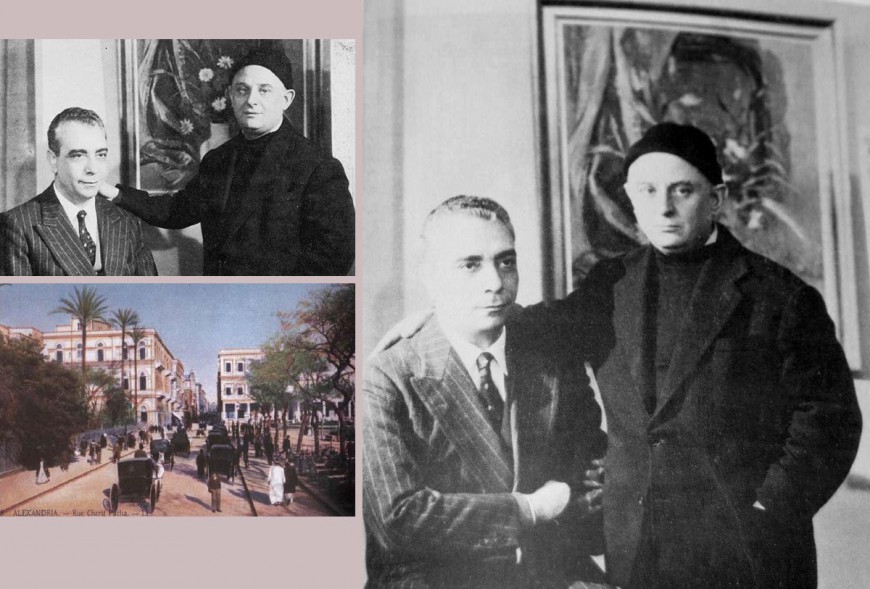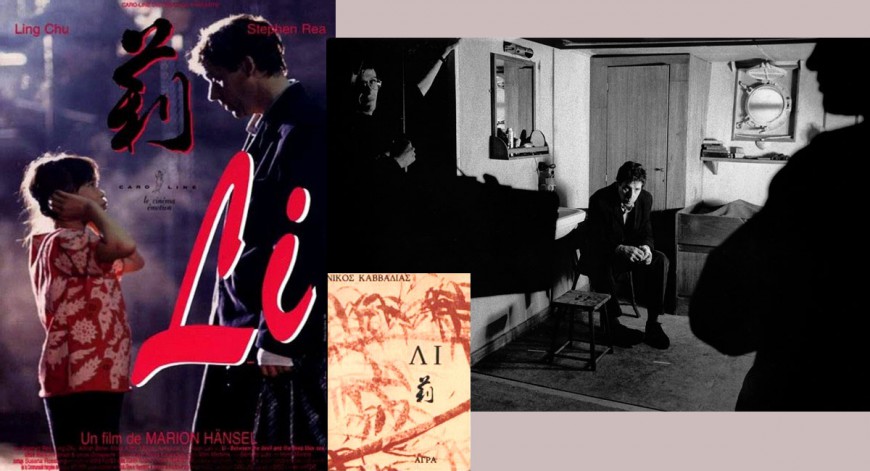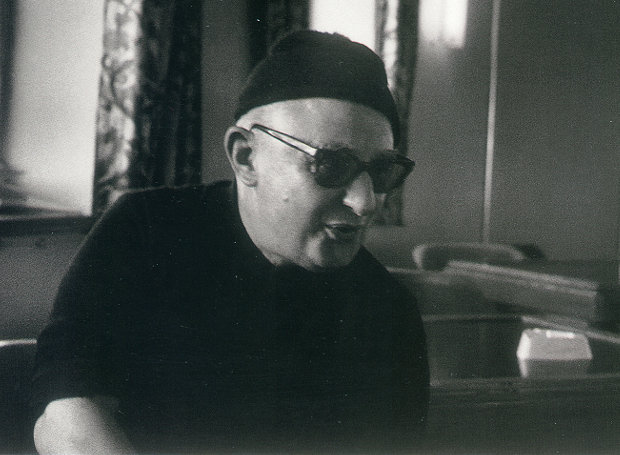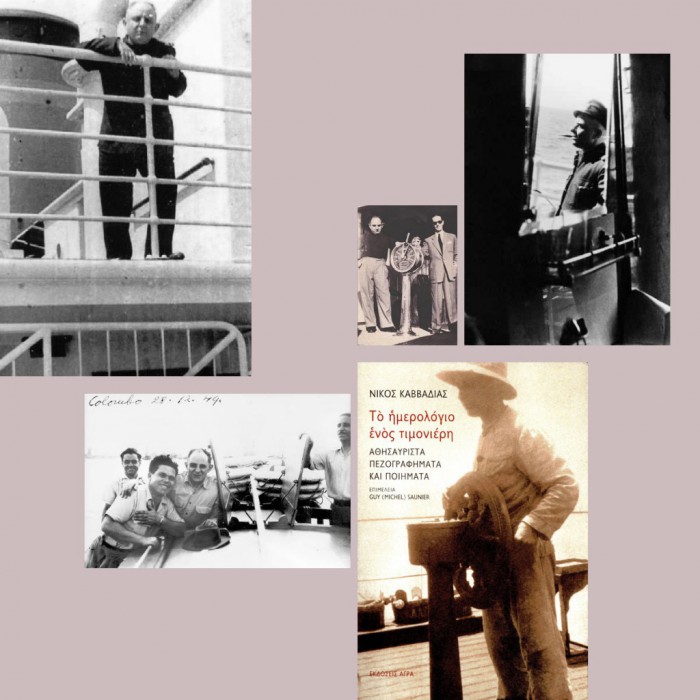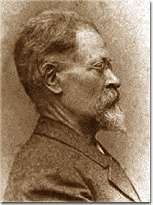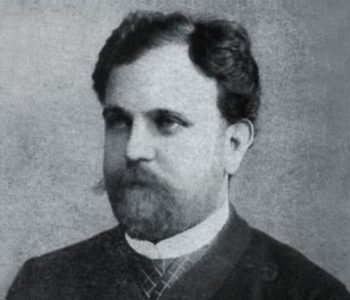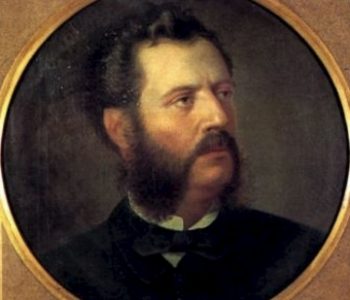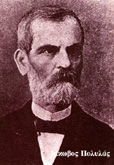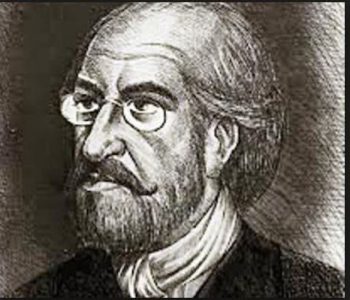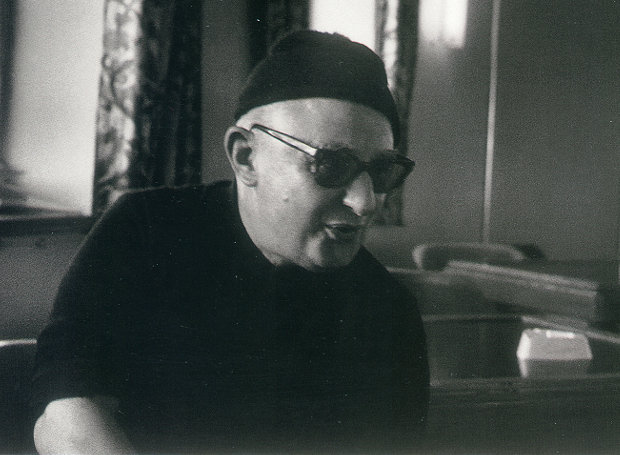
Author: Kavvadias, Nikos Kavvadias
Date of Birth: January 11, 1910, in Nikolsk-Ussuriysky, a provincial town in the Vladivostok region of Russia
Gender: Male
Biography: Nikolaos (Nikos) Kavvadias was born on January 11, 1910, in Nikolsk-Ussuriysky, a provincial town in the Vladivostok region of Russia, from parents from Kefalonia, Harilaos Kavvadias and Dorothea Angelatou. In this small Russian town, two more children are born: Jenny (Eugenia) and Mikia (Dimitris). His father, Charilaos Kavvadias, maintained a general trade office distributing large quantities of merchandise to the Tsarist army.
In 1914, with the outbreak of World War I, the family comes to Greece and settles in Argostoli, while the father returns to his Russian business, where he is financially devastated. In 1917, during the October Revolution, he was imprisoned. He returns to Greece in 1921, crushed and unable to adapt to Greek reality. After Argostoli, the family settled in Piraeus. Kavvadias goes to elementary school and he is a classmate with Yiannis Tsarouchis and Papa-Giorgis Pyrounakis. At the Gymnasium he meets the author and physician of the Navy Paulos Nirvanas. After finishing high school, he takes exams at the Medical School. But at the same time his father dies (October 1929) and Kavvadias is forced to work in a naval office. In November 1928, Kavvadias issues a nautical leaflet and brags the next year on the “Agios Nikolaos” ship, along with his younger brother Argyris, who was born in Greece in 1915. In 1933, the family moved from Piraeus to Athens. His home becomes a gathering place for writers, painters and poets. In June 1933 his first poetic collection entitled “Marabu” was released. He left for Albania in the war of the 1940s, where he first served as a carrier for the wounded soldiers and later, due to his specialty as a radio transmitter, was used at the III Division’s station. With the capitulation of the Greek army, he returns to Athens on foot. During the German Occupation, Kavvadias crosses the National Resistance lines and becomes a member of the EAM. At the same time he becomes a member of the KKE. He also belongs to the Society of Greek Writers, despite the fact that at the time he had printed only one book, Marabu, and the limit was three books. From 1954 to 1974, he travels continuously with very short breaks. During this time, the most important events in the poet’s life happen, relate to the death of his younger brother, Argyri, in 1957, the release of “Guard” in French in 1959, the reissue of “Marabou” and “Pusi” in 1961 by the Galaksias Editions, the death of his mother in 1965, and the birth of Philip in 1966, the son of Elga’s nephew. In 1975, in Athens, at the Agioi Apostoloi Clinic, he left his last breath after a stroke. He was buried at the First Cemetery of Athens in the presence of many people of letters and art.
Selected literature
Chronology of Nikolaos Kavvadias
1910 | Nikos Kavvadias was born on January 11th on the riverbank of Nikolsky Usurisky, a small provincial town of Harbin, Manchuria. |
1914 | As a result of the revolution in Sechuan, the Kavvadia family leaves the country and arrives via Turkey to Greece to settle in Argostoli, Kefalonia. |
1921 | The Kavvadia family relocates in March to Piraeus, first on Frangiades Street (Freatida) and then on Voulgari Street 118 (Pasalimani), where Nikos will finish elementary school in Saint Paul with classmates Yiannis Tsarouchis and Papa-Giorgis Pyrounakis. |
1922 | He publishes the four-page student booklet School Satyr (three issues), with texts with rhyme written by him. He collaborates with the The Education of the Children using the nickname “The Little Poet”. |
1927 | He published his first verses in the journal of the Great Greek Encyclopedia under the pseudonym Petros Valhallas. |
1928 | He finishes high school and takes exams for the Medical School. That same year, however, his father became seriously ill, forcing him to take on the financial responsibilities of the family. He will work at the Zografou Maritime Bureau, continuing his collaboration with literary magazines. He is acquainted with the people of letters and art of Piraeus and publishes collaborations in the journal of the Great Greek Encyclopedia, the Intellectual, the Rhythm and the newspaper Piraeus Vima. |
1929 | In October his father dies. As a sailor embarks on the cargo ship “Agios Nikolaos”. |
1930 | From this year begins a period of continuous travel until 1936. |
1932 | His first text, “The Wheelman’s Diary” is published in the Piraeus Vima. |
1933 | The Kavvadia family resides in Athens, in a two-storey residence on 18 Kimolou Street (Kipseli). The Marabu poetry collection, with an introductory note by the poet Caesar Emmanuel, is published in 245 copies by Cyclos editions. |
1938 | As a patron of the family, he does not serve a regular military service but is called for two months of military training in Xanthi. |
1939 | He received his B-Class Radio transmitter diploma, a specialty that would enlist him on all trips after 1945. His family moved to 10 Agios Meletiou Street, where they would all reside for 23 years. |
1940-1945 | He enlisted and fought in Albania. During the German Occupation, he participated in the National Resistance as a member of the EAM sailors at the beginning and then of the EAM writers. |
1945-1946 | During the period 1945-46 he was the head of EAM Literary-Poets. |
1947 | Pousi is released and Marabu is enriched with a second version with three more poems (“Kafar”, “Coaliers”, “Black List”). |
1949 | He was a radio transmitter in Passenger ship “Kyrenia”, which is also mentioned in his poem “The Seven Dwarfs in s / s Cyrenia”. |
1953 | He receives his A-Class Radio transmitter diploma. He travels with the steamers “Ionia”, “Corinth” (April-August), with the “Primas” truck ship (September-November) and again with the steamer “Corinthia” (December). |
1954 | The text Vardia is released (A. Karavia edition). |
1957 | In Kobe, Japan, his younger brother suicide in his cabin, shocking the poet and sinking him into silence. He will re-write a poem only in 1967 (the autobiographical “Kosmas the Indicopleustis”). |
1961 | With the mediation of Churmuzios, the Marabu and Pousi collections are released in the same edition by Galaxias edition of Eleni Vlachou. |
1964 | He moves with his mother and sister to 4 Gelonos Street, Ampelokipi. |
1965 | In May his mother dies. The poet and his sister move to 5 Dinokratous Street (Kolonaki), in the same building where Elga’s beloved nephew lived. He will dedicate “The Tales of Philip” to the Traverse Collection to her son Philip, who was born the next year. |
1968 | He visits Kefalonia with his sister after thirty-five years of absence. There he writes the text Li (Christmas). He will visit the island two more times in 1970 and 1972. |
1969 | On January 3, he writes the text To War. The text Vardia is released in French (N. Kavvadias, En bourlinguant, trad. Michel Saunier, ed. Stock, Paris 1969). |
1973 | Marabu’s and Pucci’s books are reprinted by Kedros editions. |
1974
| In December, he signs the anti-monarchist declaration in view of the relevant referendum (8 December). His health has been shaken and his end is longing. |
1975 | On Monday, February 10, he dies of a stroke at the Agioi Apostoloi Clinic. He will not be able to see his poetic collection Traverso in print. It will be released two months after his death, with a painting of Yiannis Moralis as his front cover (ed. Kedros). |
